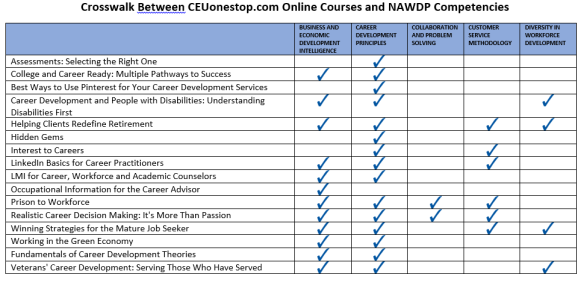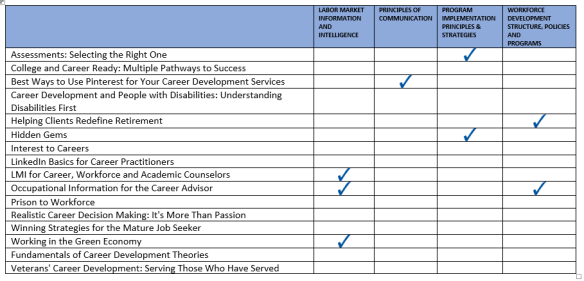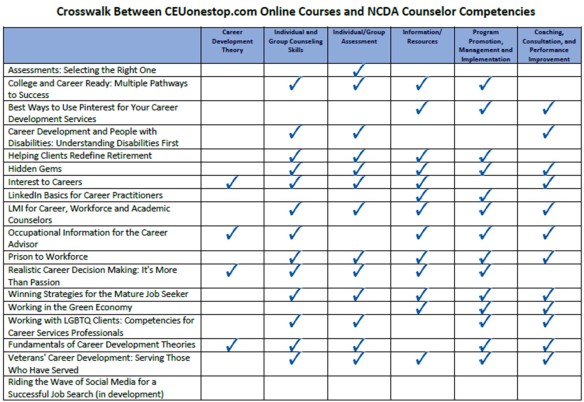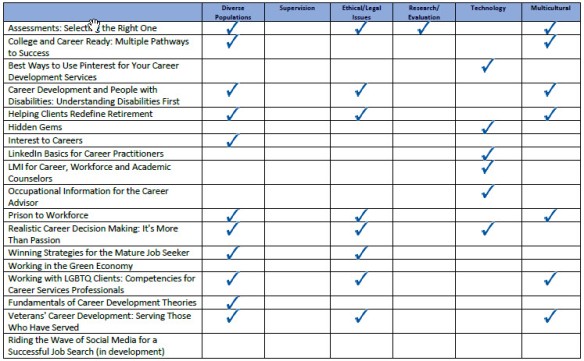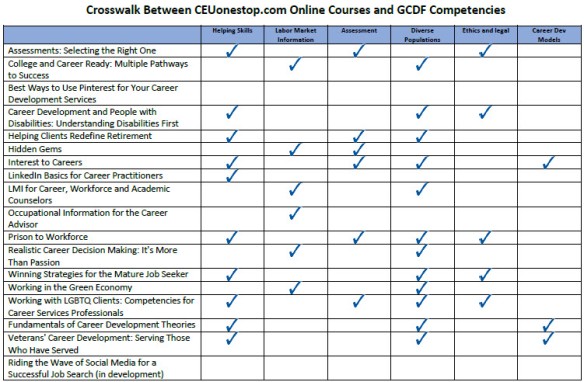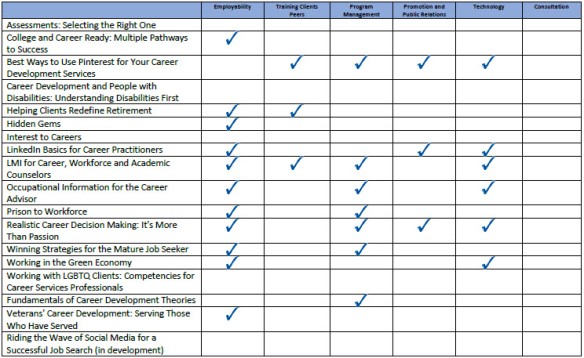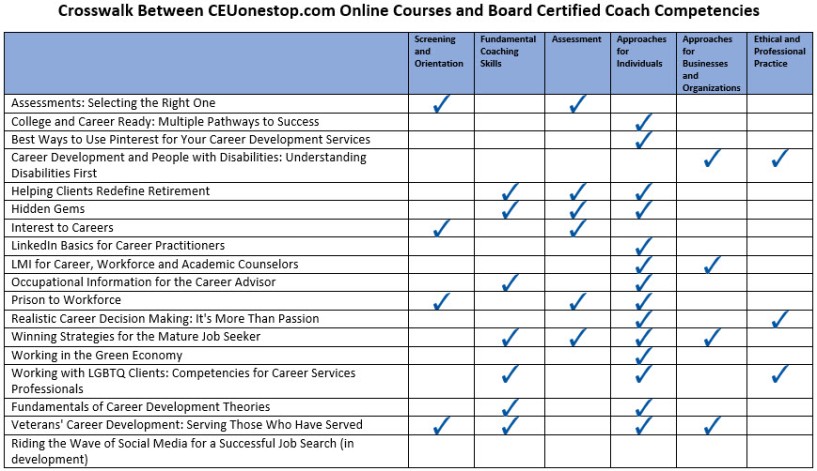Crosswalk Between CEUonestop.com Courses
and the CDWP Competencies
 The National Association of Workforce Development Professionals (NAWDP) offers the credential called Certified Workforce Development Professional (CDWP). Rigorous standards are applied to receive this certification.
The National Association of Workforce Development Professionals (NAWDP) offers the credential called Certified Workforce Development Professional (CDWP). Rigorous standards are applied to receive this certification.
Once attained, the credential must be renewed every three years to remain valid. A major stipulation to maintain the certification is to have 60 hours of documented professional development every three years.
Recently the NAWDP reviewed the online continuing education courses of CEUonestop.com and crosswalked them to the CDWP competencies. The crosswalk is represented below. Where you see a checkmark, the NAWDP stipulates that the course meets the professional development competency for recertification.
When a person successfully completes one of the online courses, a certificate of completion is offered as documentation for your recertification. The CEUonestop.com courses are verified by the National Board of Certified Counselors (NBCC) as meeting their requirements as well for certifications such as the Board Certified Coach, Global Career Development Facilitator, Licensed Professional Counselor, Nationally Certified Counselor, Distance Career Counselor, Distance Career Facilitator, and others.
For more information on CWDP recertification, visit http://www.nawdp.org/AM/Template.cfm?Section=Recertification_Requirements&Template=/CM/HTMLDisplay.cfm&ContentID=5612
For other crosswalks see
https://careerdevelopmentmusings.wordpress.com/2015/03/15/iaevg-competencies/
https://careerdevelopmentmusings.wordpress.com/2015/01/09/gcdf-certification/
https://careerdevelopmentmusings.wordpress.com/2014/12/12/board-certified-coach/
_______________________

